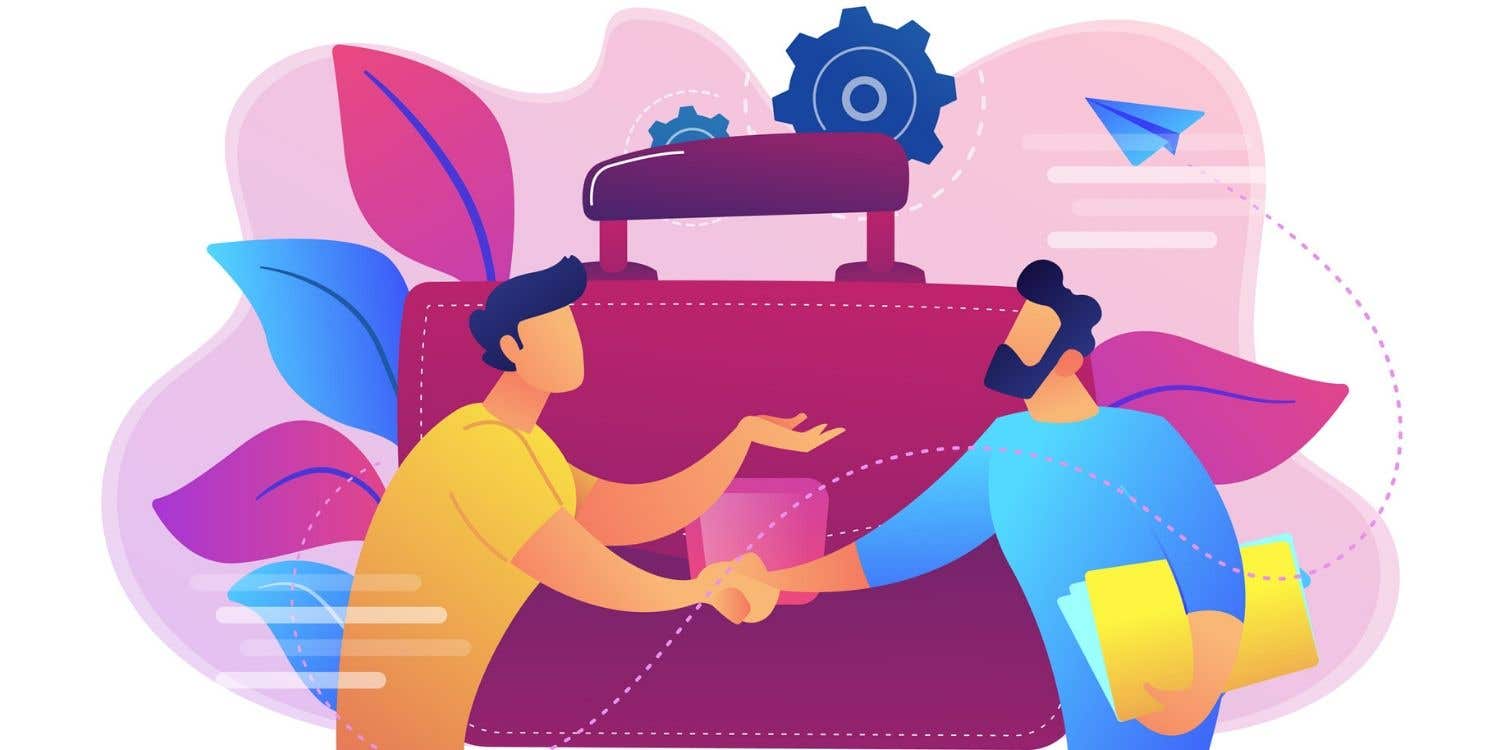Chat med AVA - Din AI-Virksomhedskonsulent
Hej, jeg er Ava, din AI-guide til at sætte turbo på din forretning!
Uanset, om du allerede har en virksomhed eller drømmer om at starte en, er jeg her for at hjælpe dig med at gøre din vision til virkelighed med AI-drevne freelancere. Del dine forretningsmål, og så vil vi skabe et projekt sammen, som vores talentfulde freelancere kan byde på. Lad os gøre din vision til virkelighed!
Jeg har en virksomhed
Jeg er ved at starte en virksomhed
Noget gik galt, da vi prøvede at sende samtalen til din e-mail. Prøv venligst igen senere.
Du kan kun gemme din samtale én gang pr. time. Prøv venligst igen senere.
Din samtale er for kort. Bliv ved med at chatte med Ava for at kunne gemme.
Why your business should pay attention to blockchain
We chatted to outspoken crypto evangelist John McAfee about the power of blockchain. This is why it matters for your business
16. dec. 2019 • 6 minutters læsning

Content Manager at Freelancer.com
Kopiering til clipboard fejlede. Prøv venligst igen efter justering af dine tilladelser.
Kopieret til udklipsholder.

Blockchain can power your business in ways you may not have considered
The rest of the world may soon be playing catch-up to China when it comes to blockchain technology.
According to a CNBC report , China has positioned itself to lead the world in blockchain. In October, Chinese President Xi Jinping gave a speech exhorting the country to "seize the opportunities" presented by blockchain, calling the technology an "important breakthrough in independent innovation of core technologies."
Xi seems to have backed up his assertion with investment. According to CNBC, more than 500 blockchain projects have been registered with the Chinese government, with large companies like Tencent and Huawei leading the charge.
While most associate blockchain with cryptocurrencies, China seems to have drawn a distinction between the two. Trading in cryptocurrency is technically banned in the country, but Xi's statement shows support for the technology underpinning those currencies. It's a distinction that McAfee Associates founder and blockchain evangelist John McAfee believes is important.
In an exclusive interview with Freelancer, McAfee said blockchain technology has ramifications that reach much further than speculative investment in cryptocurrencies.
"It is a world-changing technology," he told Freelancer. "There have been very few of them in our history. The harnessing of electricity was one of them. The automobile and motorized transport was another. The age of digital science and atomic energy. But of all these technologies, only blockchain came from the people rather than the government, or Samsung, or Lockheed Martin or some secret government program."
Important though blockchain may be, though, how do you actually incorporate it into your business?
Secure customer transactions
One of the biggest drawcards of blockchain is its ability to offer secure and fast transactions. A blockchain transaction can be completed near-instantly, anywhere in the world, and doesn't have to take into account details like exchange rates or country-specific banking regulations.
It may seem a bit outside the box to think about offering customers a cryptocurrency payment option. But according to McAfee, cryptocurrency is already being used to buy and sell just about any good imaginable.
"There is nothing in this world you cannot buy with crypto. Google it. You can buy houses, cars, bulletproof vests, shoes, fishing trips, hotel accommodations," he says.
One way cryptocurrency can secure transactions is through the use of Smart Contracts. Smart Contracts essentially hold funds until certain conditions are met. The terms are written directly into the blockchain code, so they're self-executing and don't rely on either party in the transaction manually executing the payment. All transactions are irreversible and fully trackable.
While you may not want to replace your entire payments system with crypto, offering it as an option could give some buyers additional peace of mind. It could also expand your business' reach, allowing customers from other countries to transact without any delays, foreign transaction fees or concerns about exchange rates.
Data integrity
Your business' data is one of its greatest assets. Unfortunately, there are plenty of unsavory characters out there who know this, and who either want that data for themselves, or want to corrupt it just to cripple you and your business.
Blockchain can alleviate both concerns. Its strength lies in the fact that it's both encrypted, and decentralized. Blockchain means that data doesn't live on a single server somewhere that hackers can attack and access. It spreads data out across a digital ledger, and each entry on the digital ledger is unalterable. There's no central location for hackers to steal data from, and no way to change the bits of data that exist on the blockchain.
McAfee told Freelancer the immutability and transparency of the blockchain will fundamentally change the course of history.
"If we had blockchains at the beginning of human history, we would have had a totally different history. It would be true. It would be real. There would be no more fabrication, no more loss of information. The blockchain can ameliorate all the negative traits of humans if we apply it properly."
Better customer verification
Blockchain offers a great way for businesses to trust that they're dealing with valid customers and not scammers. Traditional "Know Your Customer", or KYC, processes involve a lot difficult steps. A customer has to submit documents to a verifying authority and the authority then individually verifies them. They may submit the documents to a centralized intermediary like a credit bureau, but even then, each time the customer needs identity verification, institutions have to request the information from the intermediary.
Blockchain removes the hassle from identity verification. Customers can upload their identity data to the blockchain and receive a key. They can then choose which institutions they want to share this key with. A company trying to verify a customer's identity only needs to use the key access the KYC data already on the blockchain.
Because the data exists in a decentralized form, malicious hackers can't steal it. And because the blockchain is immutable, scammy customers can't change it. Blockchain gives consumers more control over their personal data, and gives companies more assurance that they've verified their customer's identity.
Logistics and supply chain tracking
Supply chain problems can plague big businesses. From raw materials, to manufacturing, to shipping to wholesalers to shipping to retailers, there are hundreds of opportunities for loss, wastage, theft and fraud. Blockchain has the power to solve this.
With blockchain, each step in the supply chain becomes an immutable entry on the distributed ledger. It can't be altered or falsified in any way. From the moment raw materials are dug out of the ground to the moment they're sold as a component in a smart watch, every step they take is documented and transparent.
"Companies like Wal-Mart that ship goods and have them built in 15 different countries and transport them 10 times, it's open for thievery. The blockchain exposes that," McAfee said.
A potential source of funding
This might be a rare use case, but some entrepreneurs can actually look at blockchain as a potential source of funding. Many of the cryptocurrencies currently available don't just exist for the sake of existing. They're tokens that fund a novel and practical use of blockchain.
Entrepreneurs who do find a novel use for blockchain can also develop an associated token, or cryptocurrency, for their technology. They can then launch what's known as an ICO, or initial coin offering. This is the blockchain equivalent of selling stock. They offer their cryptocurrency to investors, and can use the funds to help develop their business.
Admittedly, this isn't the easiest source of startup funding. It's an involved process that includes not only developing technology, but a fair amount of marketing savvy. But if your startup idea already hinges on a novel use of blockchain, it's an idea worth exploring.
OK, but why should you care?
Maybe your business has been getting along just fine without blockchain. Sure, the additional security and transparency is attractive, but is it really necessary for you?
It is, if you want to be ahead of the curve rather than perpetually playing catch-up. The adoption of blockchain is growing rapidly. Deloitte's 2019 Global Blockchain Survey found 53% of the businesses it surveyed said blockchain technology was a critical priority for their organizations in 2019.
"Momentum [has] shifted from 'blockchain tourism' and exploration toward the building of practical business applications," the report said.
"Indeed, blockchain is gaining traction and acceptance in more industries, from fintech to technology to media to telecommunications to government to life sciences and health care."
Blockchain is on course to become a ubiquitous technology, underpinning a lot of vital business functions. That's particularly true when it comes to data security. In the years ahead, blockchain will be table stakes for most businesses. You can choose to get ahead of this change, or you can fall victim to it.
How do you integrate blockchain into your business?
The first step is to decide how you want to use blockchain. Do you want to use it as a payment platform? Do you want to use it to secure your data? Are you more interested in its ability to track your supply chain?
Once you've determined how it best fits into your business, you'll need to look at existing blockchain solutions. Are there solutions that you can easily integrate?
If you don't find existing solutions that seem to fit your business, think about reaching out to a freelancer skilled in developing blockchain technology . They can help build a custom solution for you.
If you're not quite sure how to incorporate blockchain into your existing platform, think about enlisting the help of a Technical Co-Pilot . A Technical Co-Pilot will discuss your business needs with you, walk you through possible solutions and then find and manage the right talent for you.
Ultimately, blockchain is set to transform business and technology. And John McAfee has exhorted people to adopt the technology, and to do it swiftly.
"We can't trivialize it by putting all our attention on, 'Oh, how can we invest and do nothing but sit back and make money?' Because, people, I'm sorry, but that is a very poor business plan," he said.
Fortæl os hvad du skal have lavet
Indtast dit projektnavn
Relaterede Historier
Tal med en af vores Tekniske Andenpiloter for at få hjælp med dit projekt
Anbefalede artikler specielt til dig

Hiring freelancers for a project can save you time and money, but it's important to understand how to get the best results
4 min read

A new competitor can be a frightening prospect, but it's actually an opportunity for you to lift your game
5 min read

If your creativity needs a jump start follow Dr Christyl Johnson's tips to get back on track fast
4 min read

We spoke to the managing partner of a VC firm about the sort of startup pitches that grab investors' attention. Here's what he said.
3 min read
Tak! Vi har sendt dig en e-mail med et link, så du kan modtage din kredit.
Noget gik galt, da vi forsøgte at sende din mail. Prøv venligst igen.
Indlæser forhåndsvisning
Geolokalisering er tilladt.
Din session er udløbet, og du er blevet logget ud. Log venligst ind igen.




